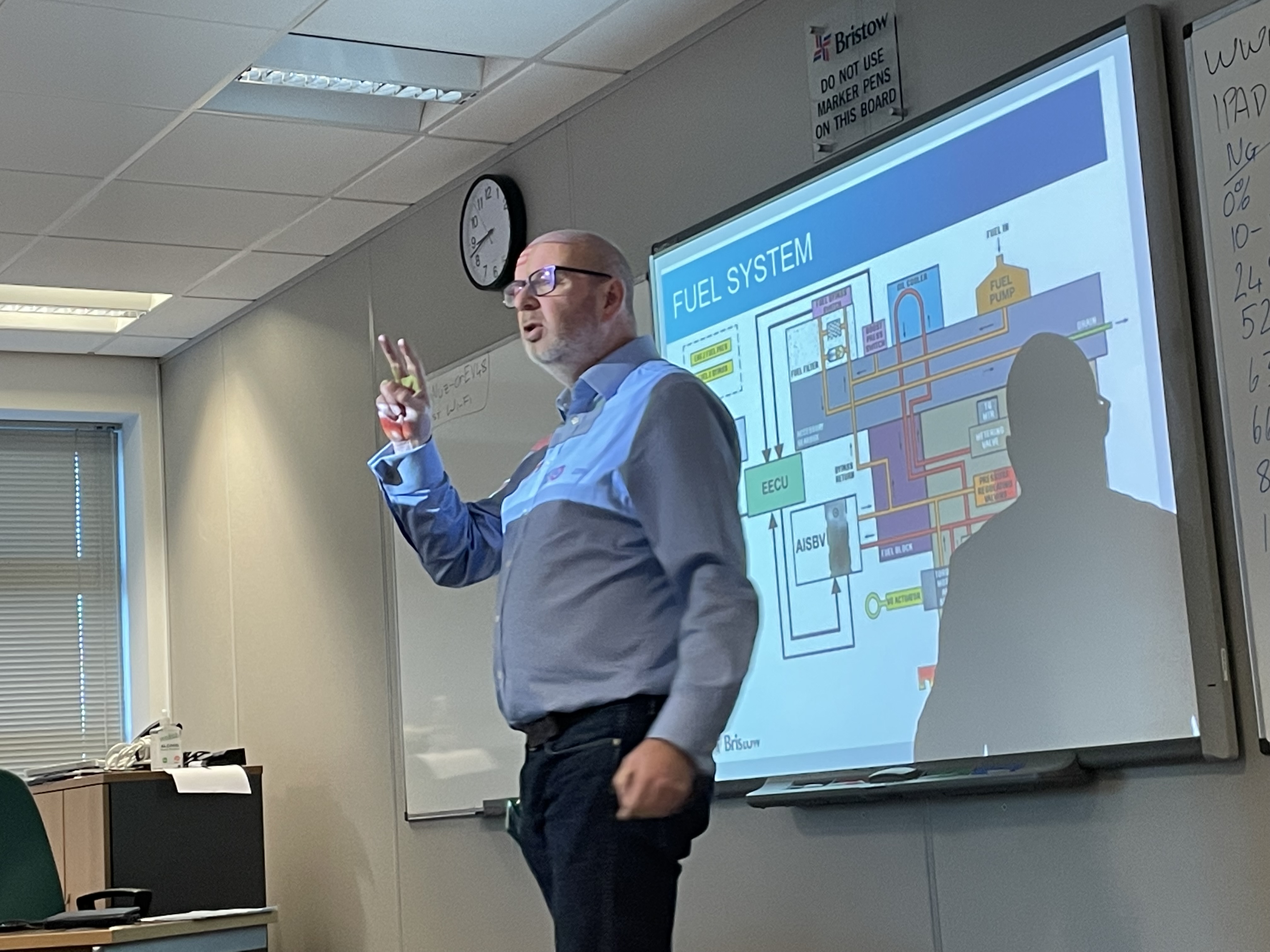Testing times mean new opportunities for these engineers

The S-92 forms the backbone of the Bristow UK fleet. Flying them is one thing, but how do we keep these complex machines in top condition, ready to operate in the North Sea or to save lives at a moment's notice?
The answer lies, partly at least, in a classroom on the second floor of the Aberdeen HQ...
In Bristow’s Aberdeen HQ nine experienced helicopter engineers are concentrating. Hard.
The group, more used to working in hangars than classrooms, is learning about the S-92. They listen closely as their instructor, Scott Stitchell, asks each of them to share what they learned in the previous lesson. They don’t hesitate.
“There are seven elements of the oil pump system.”
“Check-valve in B-Sump.”
“A three-micron oil filter.”
“The cold oil relief valve.”
“Filter bypass valves open under differential pressure.”
They go around the room for another 20 minutes, everyone chipping in, until Stitchell moves the focus to that day’s topic – the engine fuel system.
The nine Bristow engineers, seven from the Falkland Islands and two from Aberdeen, are taking part in the Bristow S-92 engineering type course. This seven-week session, run to strict EASA and CAA standards, gives licensed engineers the authority to carry out and sign off maintenance on the Sikorsky S-92.
"It's an important course," explains Stitchell. "Engineers are the critical and occasionally unsung heroes of our operation. Having the authority to carry out and sign off maintenance on the S-92, which is a key part of our fleet, is simply essential. Without these people, we don't fly. Being able to offer this qualification in-house is a tremendous boost for our business and for them as individuals.
"The S-92 is quite an advanced aircraft and the detail they need to learn is complex, but it’s clearly sinking in,” said Stitchell after the class. “This group is only on day three and they have weeks of classes and exams ahead, but they are clearly all dedicated to passing the course and getting this qualification under their belts.”
And pass they do, because in the seven years Stitchell has been delivering this course, he hasn’t had a single drop-out. All of the engineers he has trained have gone on to play critical roles in Bristow's mission-critical and life-saving operations.
Bristow engineers studying for the S92 engineering type course combine classroom and hangar-based learning
This S-92 course, although important, is just one of several delivered by the Aberdeen Training School. “Aviation is a team game,” said Stitchell. “All the parts need to work together flawlessly all the time and this course is just one way Bristow stays in the best shape to deliver for our customers and colleagues.
“Everyone from the office to the hangar to the cockpit has a critical role to play. Our commitment to training our own teams to the highest standards is an investment in our future.”
For the Falklands engineers this S-92 course represents not just an investment in their future, but also in the future of SAR and transport operations on the Falkland Islands. Teams there have decades of experience with the S-61 but are now looking ahead to operations with the S-92, heralding a new era of helicopter capability for the MOD customer in the South Atlantic.
“It’s a tough course, but for good reason,” said Stitchell. “We take experienced students to a high level of knowledge and understanding so they can provide critical support to our operations, it takes a lot of work and effort, but passing it is a significant achievement for anyone.
“This course, like all the others we deliver, is just one example of our commitment to our people and to our customers. It’s another reason to be proud to be Bristow.”
 Bristow engineers studying for the S92 engineering type course combine classroom and hangar-based learning.
Bristow engineers studying for the S92 engineering type course combine classroom and hangar-based learning.

